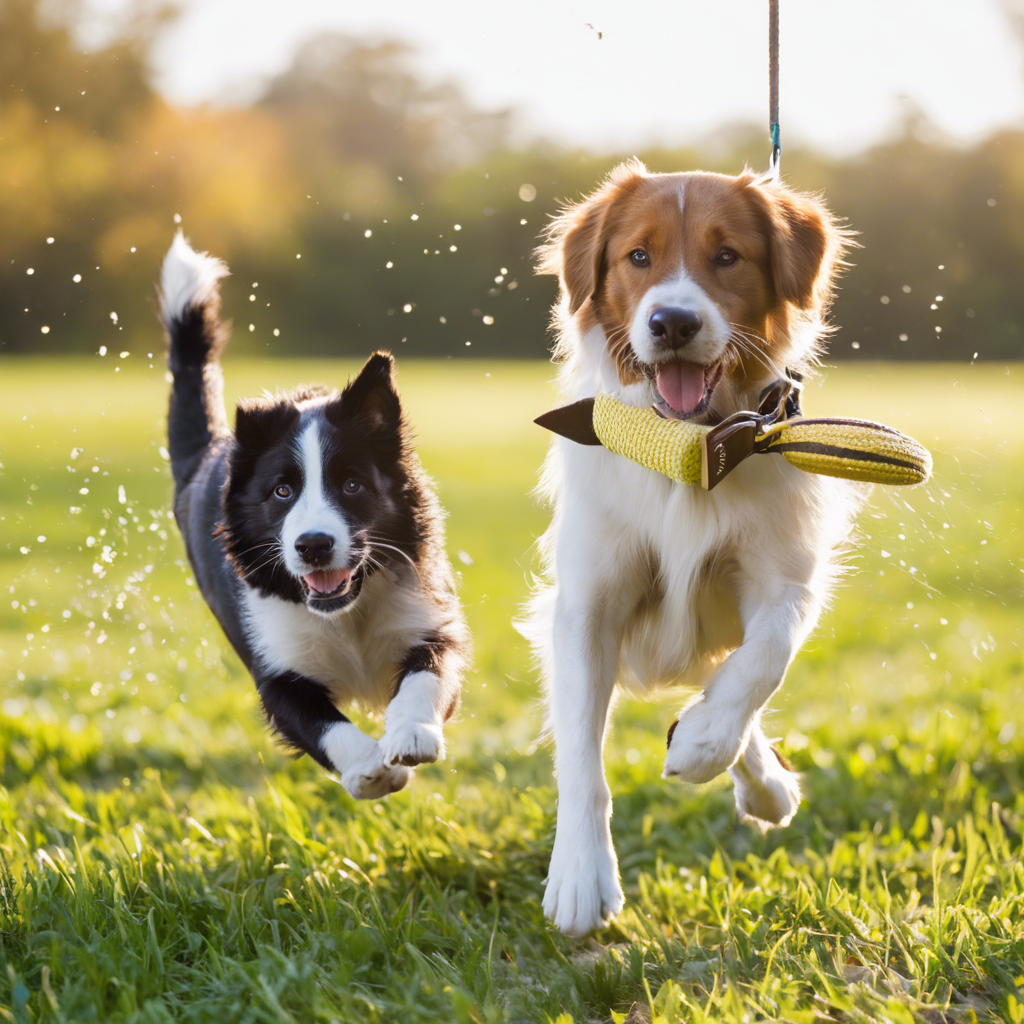Playing with your dog is not just about having fun; it’s an essential component of their training and overall well-being. Dogs are playful creatures by nature, and incorporating play into your training sessions can make learning more enjoyable and engaging for your furry friend. This approach not only strengthens the bond between you and your dog but also enhances their learning experience, making training more effective and memorable.
When it comes to dog training, positive reinforcement is key. And what better way to reinforce good behavior than through play? Dogs are highly motivated by playtime, and using it as a reward for their accomplishments can be incredibly powerful. For example, after successfully performing a command, engage in a game of fetch or a playful tug-of-war. This not only provides physical exercise but also reinforces the desired behavior, making your dog eager to repeat the action and earn more playtime.
Start by introducing interactive toys and games that stimulate their minds and encourage problem-solving. Puzzle feeders, treat-dispensing toys, and interactive games like hide-and-seek can be excellent for this purpose. These activities not only keep your dog mentally engaged but also offer opportunities to reinforce basic commands and teach new skills. For instance, you can hide treats and use the ‘find it’ command, combining play with obedience training.
The benefits of play extend beyond the training session itself. Regular play sessions can help reduce stress and anxiety in dogs, promoting emotional well-being. Playing together also encourages social interaction and helps your dog develop better communication skills. This is especially important for puppies as they learn appropriate play behaviors and bite inhibition during playtime with their littermates and humans.
When incorporating play, it’s crucial to set boundaries and ensure a safe environment. Teach your dog to differentiate between appropriate play and everyday situations. For instance, they should understand that it’s okay to tug on a designated tug toy but not on your clothing or furniture. This distinction will help prevent unwanted behaviors and keep playtime enjoyable for both you and your dog.
Consider enrolling in puppy socials or dog playgroups where your canine companion can interact with other dogs and learn valuable socialization skills. These environments provide opportunities for supervised play, allowing your dog to practice appropriate play behaviors and build confidence.
Incorporating play into your dog training routine is a recipe for success. It adds variety, keeps your dog motivated, and strengthens the bond between you. So, grab a toy, get creative, and let the games begin! Your dog will thank you with improved behavior and a deeper connection.

